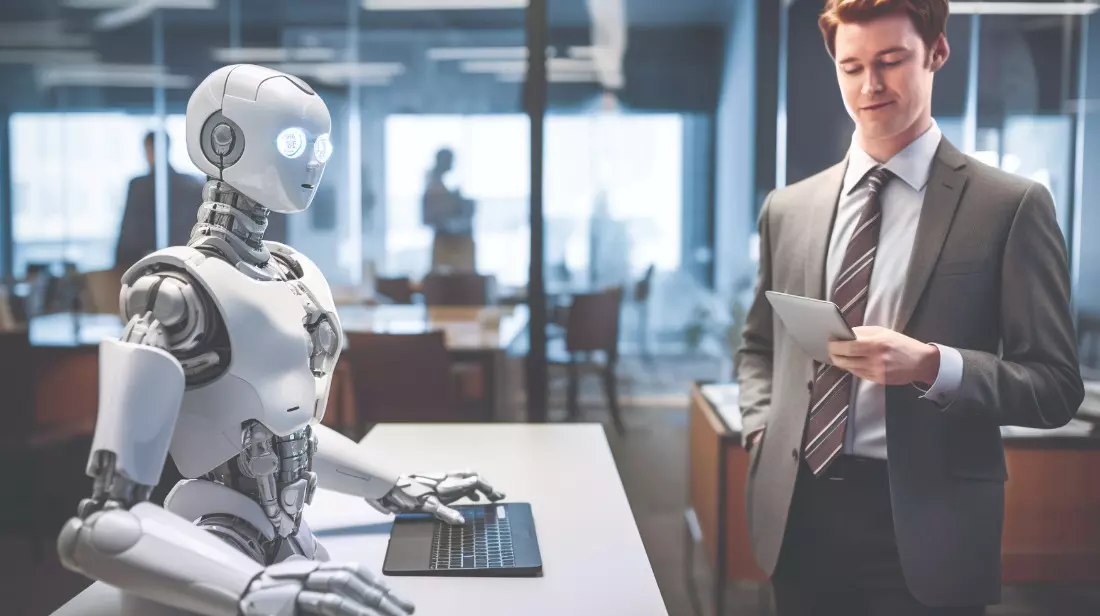Is AI changing how companies hire?
Future of hiring rests on the balance between humans and AI working together

Poushali Ghosh was sure she had nailed her final interview. The HR round went smoothly too, and she even got a tentative joining date. But two months have passed, and she’s still waiting for that elusive offer letter. It’s a familiar story. Recruiters often struggle to sift through hundreds of applications pouring in from different talent pools. Traditional hiring is time-consuming and heavily dependent on human judgement, and yes, biases too often creep in. But now, with AI stepping in, the recruitment game is changing fast. From scanning thousands of resumes in minutes to automating repetitive tasks and even predicting the right job fit with surprising accuracy, AI is making hiring quicker, smarter, and driven by data rather than guesswork.
Transformation in hiring process
According to the World Economic Forum, over 90% of employers now use some kind of automated system to screen or rank job applications. A study by Tulane University, citing findings from the Society of Human Resource Management, revealed that one in four HR managers already rely on AI tools at work. And in a recent survey of HR professionals, a whopping 70% said they believe AI will play an even bigger role in shaping the future of HR and people management. “AI is fundamentally transforming the way companies hire people, making the process faster, more efficient, and increasingly focused on skills and human potential rather than just credentials or static documents. By automating repetitive tasks, AI enables employers to hire more than twice as fast, while job seekers benefit from quicker access to opportunities. AI is making hiring less of a guessing game for everyone,” said Saumitra Ranjan Chand, Career Expert, Indeed.
Fair or unfair is the question
Bias in recruitment is hard to ignore. An HR manager might lean toward a familiar face, or a candidate could get a leg up through connections. That’s just how the traditional system often works. But many believe that introducing AI into the hiring process can help cut down on such unconscious bias by focusing purely on skills, experience, and data instead of personal influence. “AI software assesses candidates on the standard criteria — skills, experience, and culture fit — unencumbered by gender, age, or background. Fairness, however, is not inherent; it is deliberate. AI must continually be monitored and tuned to prevent biases, but when executed properly, AI makes the hiring process more transparent and fairer. Ultimately, technology can sort resumes quicker — but justice is constructed when people use that technology ethically,” said Seema Shukla, Senior HR Manager at ShepHertz Technologies.
AI vs Humans
A 2024 Boston Consulting Group (BCG) survey of chief human resources officers revealed that if a company is experimenting with AI or GenAI, 70% are doing so within their HR departments. And within HR, the biggest use case for these technologies is talent acquisition. Traditionally, recruiters stick to a few trusted sources to keep applicant volumes manageable. But with AI, that net can be cast much wider, allowing recruiters to screen many more candidates and identify the best skill-to-role matches faster. In fact, a recent Gallup survey found that 93% of Fortune 500 CHROs have already started integrating AI tools and technologies to strengthen their business and HR practices.
According to Sachin Alug, CEO, NLB Services, there are quite a few areas where AI really outshines humans. “It can automate repetitive tasks, handle large-scale resume screening, and even predict job fit with impressive accuracy. This means faster hiring, fewer human errors, and decisions backed by solid data. In short, AI takes care of the groundwork so recruiters can focus on what truly matters, connecting with people and making the final call,” he said. Shukla added that AI is brilliant at managing scale and repetition. “What this implies is that recruiters can concentrate on doing what only humans can: judging attitude, cultural fit, and potential,” she said.
Can AI replace HRs?
The future of hiring rests on the balance between humans and AI working together. AI isn’t here to replace human judgment, it’s here to enhance it. By combining data-driven insights with human intuition, recruitment can become more strategic, inclusive, and efficient. Companies that adopt this collaborative approach will not only hire smarter but also build stronger, more diverse, and future-ready teams. “Recruiters aren’t being replaced, they’re being elevated. AI is transforming the hiring process by handling the high-volume, repetitive tasks that often slow things down, such as initial screening and sorting. But the heart of hiring has always been human. No algorithm can replicate a recruiter’s ability to build trust, read between the lines, and guide someone through one of the most important decisions of their life. That’s why we see AI as an enabler, not a replacement. By giving recruiters more time and sharper insights, it strengthens their role, allowing them to focus on the conversations, relationships, and cultural fit assessments that ultimately shape successful career journeys,” said Chand from Indeed. Alug added that AI is rapidly becoming HRs smartest assistant, helping them make more informed and efficient decisions.



